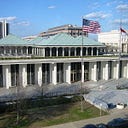The Atlantic, The Federalist Praise NC’s Proposed Bill to Combat Indoctrination
The Federalist: “Every state in America should copy this bill banning racist indoctrination in schools.”
The Atlantic: Among proposed laws dealing with indoctrination around the country, “perhaps none was more carefully written than the one in North Carolina.”
Raleigh, N.C. — Two thoughtful pieces in national publications, The Federalist and The Atlantic, praised North Carolina’s proposed bill addressing indoctrination in schools, though they reached different conclusions.
Both are worth your time.
In The Federalist, writers Neil Shenvi and Pat Sawyer support state-level legislation to address indoctrinating students in an ideology that preaches “the only remedy for past discrimination is present discrimination.” They critique broader proposals in other states and praise North Carolina’s approach as “pointed and precise.”
In the The Atlantic, writer Conor Friedersdorf offers similar praise for North Carolina’s bill (“perhaps none was more carefully written than the one in North Carolina”). He writes that “for lawmakers or parents to object to curricula that promote ideological dogma about race is neither illiberal nor authoritarian.”
But he essentially considers a Venn diagram with one circle capturing legislation that’s “broad enough to exclude pernicious dogma” and another circle capturing legislation “narrow” enough “to avoid a chilling effect.” He more or less concludes that there is no overlap between the two circles, and therefore any legislative effort will be fruitless.
Below are excerpts.
“A bright spot in the myriad of legislation being proposed and adopted is a bill recently introduced in North Carolina: H.B. 324. . .
“First, the bill does not explicitly name ‘critical race theory.’ This approach is wise. Many of the most pernicious ideas affecting our schools and society, such as ‘all whites are complicit in racism,’ ‘law is primarily a mechanism to justify the dominance of the ruling class,’ or ‘heteronormativity is oppressive and needs to be dismantled’ are most accurately domiciled to critical social justice (CSJ) or antiracism discourse.
“While CRT is a fluid, evolving, and growing discipline that certainly informs aspects of CSJ and antiracism ideology, the bill is smart to be conscientiously precise. Not only is that the right thing to do, it will also offer the bill some protection against accusations that it misunderstands CRT or is not representing CRT fairly.
. . .
“Third, the particular ideas the bill targets will not affect the honest teaching of history. Students should absolutely be exposed to both the triumphant and the shameful events of our nation’s history, a point explicitly made in the bill when it states it may not be used to prohibit the ‘impartial discussion of controversial aspects of history’ or ‘impartial instruction on the historical oppression of a particular group of people based on race, ethnicity, class, nationality, religion, or geographic region.’
“There is a difference between teaching historical facts and forcing a particular interpretation of those facts on students. For instance, teachers do not need to teach that our nation is inherently oppressive any more than they need to teach that our nation is inherently righteous. Both views obscure, rather than illuminate, the messy realities of history.”
Critical Race Theory Is Making Both Parties Flip-Flop
“Yet even harsh critics of this kind of legislation grant that North Carolina’s effort is less vulnerable to censorious abuses than those of other states. For example, the Acadia University instructor Jeffrey A. Sachs surveyed more than 50 bills in 24 states that would add restrictions to what K–12 educators could tell students about race or sex. He concluded that legislators who wanted to ban teaching topics such as white privilege and the work of authors such as Robin DiAngelo and my colleague Ibram X. Kendi had ‘drafted bills so broad and clumsily written that entire historical eras and swathes of contemporary events would be barred from discussion.’ The large majority of these bills ‘are repugnant to an open society,’ Sachs declared — yet he noted that ‘North Carolina’s bill is the exception’ and ‘would probably do little harm.’
. . .
“I sympathize with fears that some educators try to indoctrinate rather than educate public-school students about race and that some left-progressive perspectives about race veer into racial essentialism, discrimination, or crude racial stereotypes, like the notion that showing up on time or revering the written word is an attribute of ‘white culture.’ Any teacher actively promoting the concepts targeted by the North Carolina bill should meet public resistance. For lawmakers or parents to object to curricula that promote ideological dogma about race is neither illiberal nor authoritarian, any more than objecting to Lost Cause mythology in public schools is illiberal or authoritarian.
. . .
“But the bill’s opponents vastly exaggerate its potential harm when they claim, as did North Carolina’s ACLU chapter, that ‘rather than help young people get the most out of their education to help them grow into informed and engaged citizens, some lawmakers want to practice censorship and impose an alternate version of American history — one that erases the legacy of discrimination and lived experiences of Black and Brown people, women and girls, and LGBTQ+ individuals.’ If passed, this bill will result in no such erasure.
. . .
“The activists pushing these laws ought to study the history of the academic movement they tout as their enemy: As an early generation of critical race theorists discovered in the early 1990s, when they worked to promote speech codes in higher education, policy makers will inevitably struggle to write a bill that constrains discriminatory teaching narrowly enough to avoid undue censorship and broadly enough to achieve their goals. Should this bill become law, like those bygone speech codes, the victory may prove as Pyrrhic.”
